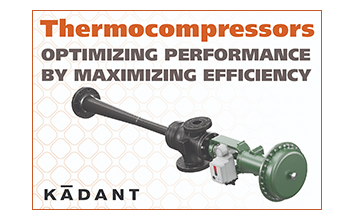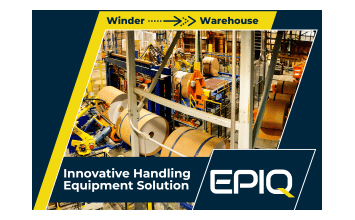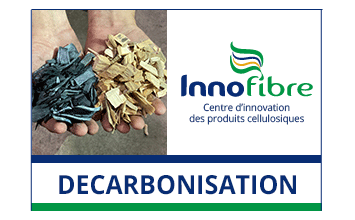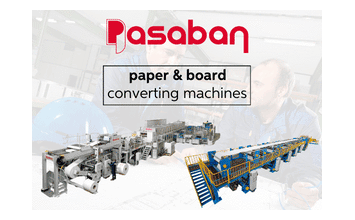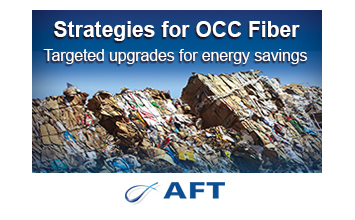Metsä Group Half-year financial report January–June 2023
January–June 2023 (1–6/2022)
- Sales were EUR 3,116 million (3,416).
- Operating result was EUR 402 million (589). Comparable operating result was EUR 380 million (574).
- Result before taxes was EUR 389 million (564). Comparable result before taxes was EUR 370 million (550).
- Comparable return on capital employed was 10.7% (18.3).
- Net cash flow from operations was EUR 18 million (456).
April–June 2023 (4–6/2022)
- Sales were EUR 1,481 million (1,822).
- Operating result was EUR 127 million (248). Comparable operating result was EUR 104 million (330).
- Result before taxes was EUR 119 million (235). Comparable result before taxes was EUR 98 million (317).
- Comparable return on capital employed was 5.9% (20.5).
- Net cash flow from operations was EUR -19 million (321).
Events during the second quarter of 2023
- The average sales prices for Metsä Group’s long-fibre pulp decreased compared to the previous quarter.
- The average prices for Metsä Board’s paperboards remained stable compared to the previous quarter.
- Metsä Board adjusted its production to meet demand. The demand for paperboard declined due to the decreasing demand for consumer products and the adjustments made to inventories in the value chain. Metsä Fibre also adjusted its pulp production.
- In June, Metsä Wood decided to construct a new LVL mill in Äänekoski. The value of the investment is EUR 300 million.
- Metsä Fibre is planning a demonstration plant for a modified lignin product in cooperation with Andritz.
- In June, Metsä Group introduced the Metsä Group Plus forest management model, which pays closer attention to forest nature in the implementation of forest work.
- The European Commission ended its antitrust investigation into the wood pulp sector in June, having concluded that there were no grounds for continuing the investigation.
Result guidance for July–September 2023
In July–September 2023, Metsä Group’s comparable operating result is expected to be weaker than in April–June 2023.
President and CEO Ilkka Hämälä:
As expected, the first quarter and its excellent result were followed by a poorer result in the second quarter. The quarter’s result was weak. The Group’s largest business areas – paperboard and pulp – are experiencing a slow business cycle. The demand for paperboard is low, especially in the European market, where high inflation has affected consumers’ purchasing behaviour and therefore the demand for packaging materials. The import of Chinese paperboard is having a significant impact on the folding boxboard market, especially around the Mediterranean. The demand situation in the US, an important market for Metsä Board, is considerably stronger than in Europe. In the pulp market, prices have been decreasing in the first half of the year. In China, the market price has dropped by roughly a third from its peak. The low availability rates of the European paper and paperboard industry have reduced pulp consumption. The Chinese market has turned to Europe for pulp volumes replacing the normal level of pulp deliveries from Russia and Canada. Due to the demand in the paperboard and pulp industry, production was curtailed at Metsä Board’s and Metsä Fibre’s mills in the second quarter. The demand for sawn timber was lower than normal because of the weak demand in the construction industry. The demand for Metsä Wood’s birch plywood and LVL has remained at a good level. As the market for spruce plywood was weak, similar to the previous quarter, production at the Suolahti plywood mill was curtailed. Tissue and greaseproof papers are consumer products enjoying relatively stable demand, as has been seen during the current economic cycle. Metsä Tissue posted a strong performance.
The wood market has been active in the first part of the year. In February, Metsä Group released its strategic regenerative forestry target, and since June, we have been offering forest owners the Metsä Group Plus forest management model, which pays increased attention to forest nature and the biodiversity of commercial forests in forestry and harvesting work. The new service has been very well received. Despite the economic cycle leading to reduced wood consumption in the pulp and sawn timber industry, Metsä Group aims to increase its wood supply volume in the latter part of the year to meet the needs of the Kemi bioproduct mill, which will start up in the third quarter.
The development of new products continues to be active. At the textile fibre demo plant, test runs were launched using a revised process based on the experiences from the first stage of testing. Valmet and Metsä Group’s joint 3D demo plant for moulded fibre-based packaging produced the first product series in cooperation with Fiskars. Andritz and Metsä Group agreed to invest in a demo plant producing lignin for new products in Äänekoski. Dow, a materials science company, will use the lignin to produce raw material for the concrete industry.
The Group’s investment projects scheduled for completion in the latter part of the year include the Kemi bioproduct mill, where much of the test use of equipment began in the second quarter, the development investment in the Kemi linerboard mill, which will be deployed when the bioproduct mill is started up, and the 50% increase in the capacity of the Husum folding boxboard machine to 600,000 tonnes per year. The Husum project will be completed in the fourth quarter.
The revision of the Group’s enterprise resource planning solution is one of the largest ongoing investment and development projects. The information system project began with the definition of business processes in 2018, and the last parts of the new system will be completed in 2026. To date, the common financial and wood supply solutions have been implemented as planned. The deployment of the first industrial business system has begun in Metsä Wood. Ongoing industrial projects include Metsä Tissue’s next-generation tissue paper mill in Mariestad and Metsä Wood’s LVL mill, featuring two production lines, in Äänekoski. An investment decision on the latter was made in June. The pre-engineering and environmental permit processes of the Kaskinen folding boxboard mill are progressing, and any preparation of the investment decision is expected to begin in a year.
For better and worse, economic cycles have a strong and sometimes unexpected impact on our industry. It is essential to be realistic in estimates of global demand and to secure the competitiveness of our own operations. Metsä Group is in a strong financial position to carry out both ongoing and planned development projects, which will help secure future competitiveness. Our operations are based on converting our owner-members’ ecologically, economically and socially sustainably produced wood for people’s daily needs. Metsä Group performs its task as part of Finnish society, developing its operations every day.
Source: Metsä Group
Legal Notice: Paper Advance is not responsible for the accuracy or availability of content on external websites.





